#www.psychiatry.org 1
Text
Transmedicalism (may give some trans folkx validity) is mosty transphobic to me.
I’ve seen a handful of trans people (and lots of cis het transphobes cheering them on, ofc) saying some transphobic shit about this whole Planet Fitness ordeal of a pre transition transwoman shaving her legs in a womans bathroom, and I guess some cishet paremt left their 12 year old alone in the bathroom and now TERFs and Transphobes (cis and het transphobes) are piling onto this occurence as “SEE I TOLD YOU! WE HAVE TO FORCE ANYONE WHO SAYS THEY ARE TRANS TO GO THROUGH HORMONES AND SURGERY BEFORE WE SAY THEY ARE REALLY TRANS”.
Ive even had some cis friends call me in a panic about it.
Yall need to realize, there ARE trans prople who are transphobic and the anti trans movement LOVES those token trans people.

(^Pic from source 2 below)
“Transmedicalism brings together unusual allies, some within the transphobic gender critical movement who see it as a useful tool in their quest to erase transgender people and their identities, and a minority within the community itself who believe that only those who have been diagnosed with gender dysphoria and who have completed surgical and other medical transition can truly be considered trans.
Claiming that gender dysphoria is intrinsic to having a transgender identity is a perspective that effectively erases the identity of a huge swathe of the transgender community, including non-binary people. It is also counter to any definition of being transgender outlined by public bodies and specialists, from:
The American Psychiatric Association (https://www.psychiatry.org/patients-families/gender-dysphoria)
to the NHS (https://www.england.nhs.uk/commissioning/spec-services/npc-crg/gender-dysphoria-clinical-programme/gender-dysphoria/)
Making gender dysphoria inherent to trans identity, experience, and indeed definitive to it, leads to a series of clearly untrue and indeed perverse conclusions.
It makes suffering intrinsic to trans identity and experience, something that is not only demonstrably untrue, but upon even a moment’s reflection, cruel as a framework. A person’s gender identity is not emergent from or dependent on trauma, and they don’t need to be subject to discomfort and suffering to ‘qualify’ as who they are.
It denies bodily autonomy and applies gatekeeping criteria to a person’s gender identity based on events to which they are physically and/or medically subjected.
It drags us back to a world where people claim that they can tell others who they are, what gender they experience, and undermine self-knowledge, with those requiring gender dysphoria as a ‘qualification’ of being trans claiming to control and define the gender identity and selfhood of others. This is in fact a component of transphobia and trans erasure, and a dangerous precedent for the community.”
^ Source 1: (https://www.gendergp.com/not-all-trans-people-experience-gender-dysphoria/
“Transmedicalism is a view of transgender identity that holds that experiencing dysphoria is required for ‘legitimate’ trans identity. This belief asserts that gender dysphoria, generally described as a feeling of distress originating from the incongruence between one’s assigned gender and gender identity, is a condition to be treated through medical intervention such as hormone therapy and gender affirming surgeries. Transmedicalism grounds transness in gender dysphoria, asserting that a lack of gender dysphoria is a lack of trans- ness.”
Further: “… transmedicalism is a nuanced framework of patholo- gizing transgender identity that depends on and perpetuates systems of oppression, intracommunity conflict, and limited visibility of trans subjects.”
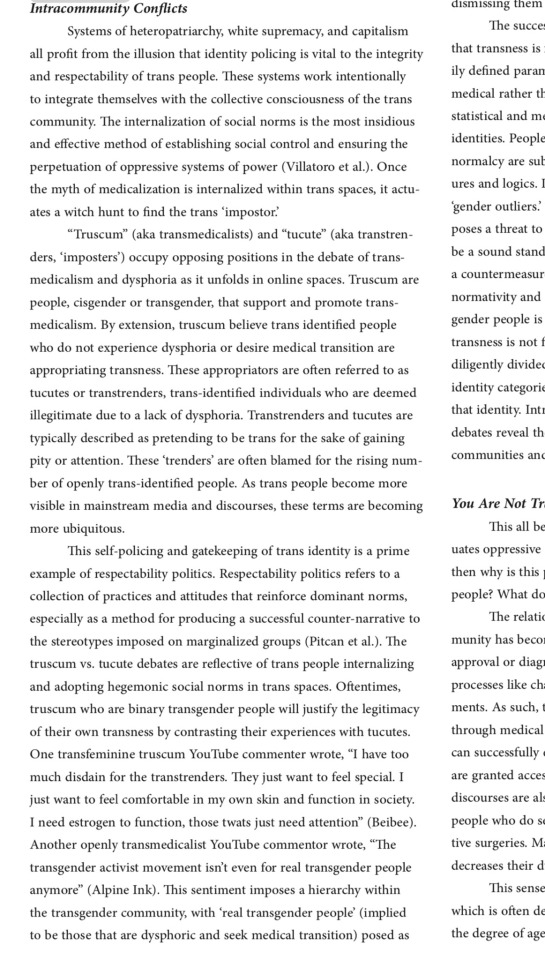
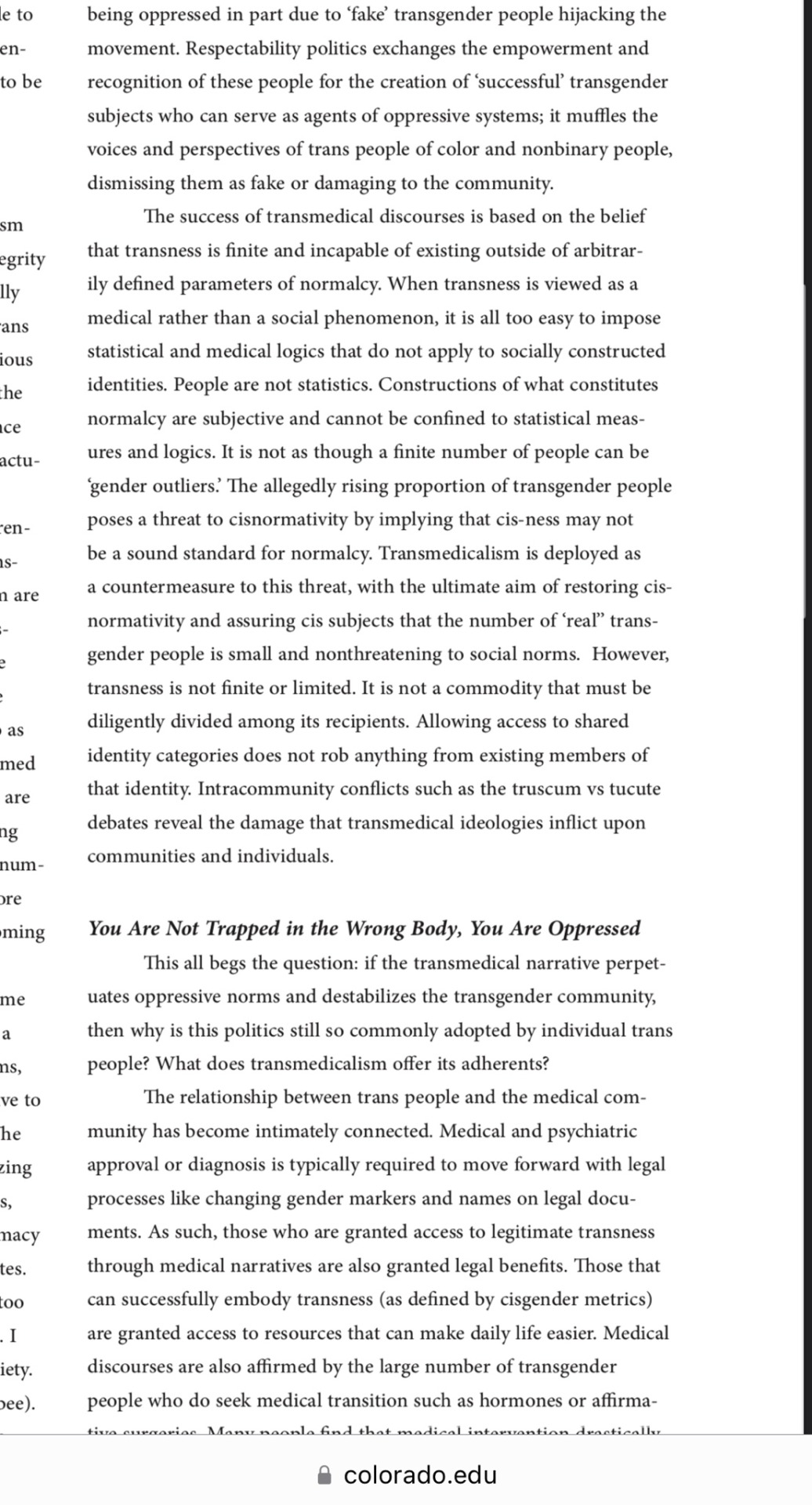
X
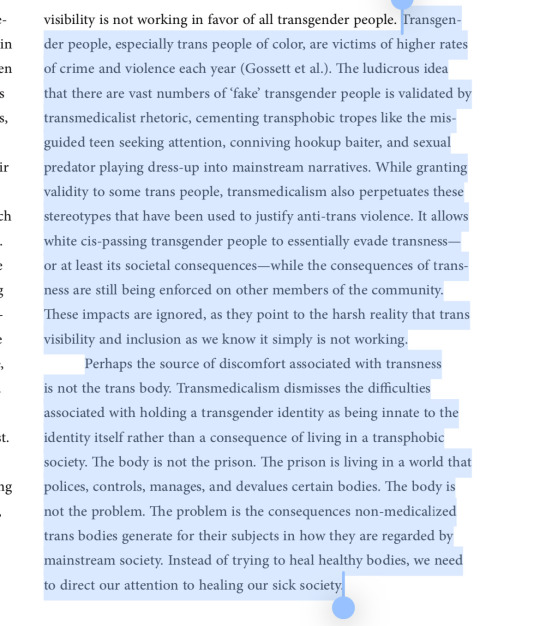
^ Source 2: (https://www.colorado.edu/honorsjournal/sites/default/files/attached-files/hj2022-genderethnicstudies-hendriethetrap.pdf
#trans#trans women#transfem#transmasc#trans woman#trans man#lgbt#lgbtq#lgbtiqa2s#queer#non binary#enby#mycology#magic mushies#microbiology#mold#60s psychedelia#lgbtqia#lgbtqia2s#lgbtqia2s+#myc
4 notes
·
View notes
Text

Pets offer numerous benefits to their owners, both physically and mentally. Here are some of the key benefits:
Reduces Stress and Anxiety: Interaction with pets has been shown to decrease levels of cortisol, a stress-related hormone. This can help reduce stress and anxiety[1][7][10].
Improves Heart Health: Regular walking or playing with pets can decrease blood pressure, cholesterol levels, and triglyceride levels, which are beneficial for cardiovascular health[1][3][4][9].
Boosts Mood and Self-esteem: Pets can trigger feelings of comfort, security, and emotional support, which can have positive effects on humans by counteracting feelings of anger, sadness, anxiety, and depression[5].
Promotes Physical Activity: Owning a pet, specifically a dog, can significantly impact an individual’s level of physical activity. People with dogs engage in more minutes of physical activity per week[3][9].
Strengthens the Immune System: Multiple studies examining children’s exposure to pets found protective effects against allergies and increased immunity[3].
Improves Social Skills: Pets can be a great social lubricant for their owners, helping you start and maintain new friendships. Dog owners frequently stop and talk to each other on walks, hikes, or in a dog park[7].
Alleviates Feelings of Loneliness: Pets can help manage loneliness and depression by providing companionship[4][9].
Improves Coping Mechanisms: Pet owners have reported significantly better coping self-efficacy and significantly more positive emotions[2].
Remember, the benefits of owning a pet are not just limited to dogs and cats. Other animals, such as rabbits, can also provide similar benefits[7]. However, it's important to note that owning a pet also brings new responsibilities, such as knowing how to care for and feed an animal[1].
Citations:
[1] https://newsinhealth.nih.gov/2018/02/power-pets
[2] https://www.ncbi.nlm.nih.gov/pmc/articles/PMC8470955/
[3] https://www.petfoodinstitute.org/resources/the-human-animal-bond/physical-health-benefits/
[4] https://www.cdc.gov/healthypets/keeping-pets-and-people-healthy/how.html
[5] https://www.frontiersin.org/articles/10.3389/fpubh.2023.1196199/full
[6] https://www.axahealth.co.uk/health-information/mental-health/resilience/physical-and-mental-health-benefits-of-having-a-pet/
[7] https://www.helpguide.org/articles/mental-health/mood-boosting-power-of-dogs.htm
[8] https://www.psychiatry.org/news-room/news-releases/positive-mental-health-impact-of-pets
[9] https://www.forbes.com/sites/nicolefisher/2019/05/12/8-ways-pets-improve-your-health-and-wellbeing/
[10] https://www.animalfriends.co.uk/dog/dog-blog/10-benefits-of-owning-a-pet/
[11] https://www.forbes.com/sites/traversmark/2023/06/28/a-psychologist-explores-the-transformative-power-of-pets-on-mental-health/
[12] https://kb.rspca.org.au/knowledge-base/what-are-the-benefits-of-companion-animals-to-human-health/
[13] https://www.bps.org.uk/psychologist/value-pets-human-health
[14] https://psychcentral.com/health/pets-and-mental-health
[15] https://www.morethan.com/pet-insurance/guides/9-benefits-of-having-a-pet/
[16] https://www.onehealth.org/blog/10-mental-physical-health-benefits-of-having-pets
[17] https://www.mentalhealth.org.uk/explore-mental-health/a-z-topics/pets-and-mental-health
2 notes
·
View notes
Text
Problems with terms like “narcissistic abuse”, or “sociopathic abuse”, ect
1) Even if you acknowledge that people can have traits without disorders or that not everyone with a cluster b personality disorder is abusive, these terms imply personality disorders. It doesn’t matter what your intentions are, people associate these terms with PDs.
2) it simplifies personality disorders, as well as spreads misinformation. I’ve seen things like “signs someone is a narcissist” and the list will be unrelated to NPD symptoms. Also, there’s more to NPD and ASPD then a lack of empathy. There’s more to ASPD than getting in trouble with the law or being deceitful. There’s more to NPD than being arrogant and entitled. There’s more to BPD than rage and splitting and there’s more to HPD then attention seeking and seductive behavior. Even then, these symptoms shouldn’t be stigmatized, because that just creates a hierarchy of who’s a “model” or “better” cluster b, when all people are deserving of support. Of course, there’s no excuse for when these symptoms harm others, but sometimes they don’t, so there’s no reason to stigmatize them.
3) People with personality disorders are different people. They may share the same diagnosis, but there is more to a person than that. It may be called a “personality disorder”, but in psychology, personality is defined as a pattern of thinking, feeling and behaving. A personality disorder is a an unhealthy form of these patterns. That being said, in order for someone to have a personality disorder, it must impact their life in some way.
4) Many people with cluster b personality disorders have a history of abuse. When you say that they’re all abusive, you are grouping them in with their abuser (s), and while some victims of abuse can go on to becoming abusers themselves, this isn’t the case for a majority of abuse survivors.
5) it makes it seem like narcissistic, sociopathic or borderline abuse is a different type of abuse or a more severe type, when in actuality, there’s no difference between them and other types of abuse.
6) it prevents people with personality disorders from getting help. People with Cluster B disorders may be afraid to get help because of the stigma. Professionals have been known to refuse treatment for people with cluster b personality disorders as well as treat them terribly.
6) Armchair diagnosis. Many people who use these terms participate in armchair diagnosis, which means they diagnose someone else when A) they are not professionals or their profession prohibits them from giving a diagnosis of the health condition they are “diagnosing” or B)They are professionals and able to diagnose, but the person is not their patient. Armchair diagnosis is unethical and is considered to be so by the APA.
https://www.psychiatry.org/newsroom/news-releases/apa-calls-for-end-to-armchair-psychiatry
https://www.bpdcommunity.com.au/static/uploads/files/2016-sheehan-the-stigma-of-pds-wfcdbbajayss.pdf
https://www.apa.org/topics/personality-disorders/causes
https://en.m.wikipedia.org/wiki/Narcissistic_personality_disorder
#narcissistic abuse isn’t real#narc abuse isn’t real#narcissistic abuse#npd#aspd#hpd#bpd#borderline abuse#sociopathic abuse#psychopathic abuse#narcissistic personality disorder#antisocial personality disorder#histrionic personality disorder#borderline personality disorder#cluster b abuse
129 notes
·
View notes
Note
I recently realized i’m probably a trans guy and I’ve been having a really hard time battling internalized transphobia and wondering if i’m “trans enough” /feeling imposter syndrome about it. I need to tell my therapist about it because he’s the only person i trust with this rn but i’m terrible at owning up, especially considering i’ve been having some (trigger warning) suicidal thoughts. Do you have any advice for how to bring my gender identity up in our next session? Also, i just have to ask: does it get better?
firstly, "trans enough" comes from a transphobic discourse from a decade ago, that said only 1 in 30,000 people were trans, which is very wrong. it's a myth that still lingers among transphobes today when they are trying to count our numbers, but basically there are better ways to figure yourself out. https://ai.eecs.umich.edu/people/conway/TS/TSprevalence.html
when you're talking about sociological identity you go by what works for your mind. gender euphoria indicates that you are closer/warmer to expressing your gender identity & gender dysphoria indicates that you are further/colder from expressing your gender identity. part of the reason a therapist is helpful is because they can help you figure out between intrusive thoughts & thoughts that you agree with & other nuances like that.
when you are transitioning you are seeking to improve the quality of your life. generally there are about 3 transitions that happen, & the pace will vary depending on what you have available: social transition, medical transition, legal transition.
your mileage will vary on whether "it gets better", but the point of transitioning is to make your life better, while having your consent & authenticity be respected, and self-respect counts for a lot here. you will be seeking to make yourself secure as opposed to insecure. therefore, while you will face new problems, the goal is to help yourself.
that being said, in the course of my lifetime it was illegal for trans minors to get HRT in my state until about 2013. So basically anyone younger than me has had a better quality of life regarding medical transition & social transition, which transphobic lawmakers in several states are attacking.
Point being, the activists & advocates for the LGBT+ community, for bodily autonomy rights, for anti-bullying, for refuting the "1 in 30,000" myth, for a feminist economy, their organized work, towards getting those oppressive systems changed, not just regarding HRT, but with gender marker corrections too (which in my state became legal in 2018 on the Appropriate Clinical Treatment standard instead of the Bottom Surgery standard),
The work of several groups of people over several decades is what makes things better & allows trans people to transition. I would recommend "transgender history" (2nd edition) by Susan Stryker because it goes into a lot of the activism history in USA over the 20th thru 21st centuries.
So it'll depend on what work (either for or against trans people) has already been done, and while you need to build yourself up first before you can help a lot of others, remember that your quality of life will depend on others & it'll help to work with others for collective improved quality of life. Also regarding your transition, you might need to deal with other areas of your life to help further your transition, such as perhaps your living situation, because it's harder to heal when the injury is ongoing. Don't take it for granted that things will get better, but you are not alone & you should seek out connections (which is technically part of social transition).
So what this means for your therapist is that you can either be like upfront so that you can spend the whole session going over it, or you can discuss these various other parts of your life that will be important for a transition. Here's an article about what sort of care/therapy/treatment your therapist should be giving you, basically they respect your pace & identification: https://www.psychiatry.org/psychiatrists/cultural-competency/education/transgender-and-gender-nonconforming-patients/gender-affirming-therapy
Good Luck, Peace & Love,
Eve
8 notes
·
View notes
Photo

INTRODUCTION
Depression is a common mental disorder. Globally, more than 264 million people of all ages suffer from depression. Depression is a leading cause of disability worldwide and is a major contributor to the overall global burden of disease personal or family history of depression, major life changes, trauma, stress, and certain medications can contribute to a higher risk of developing depression. 74 million adolescents in the world have had at least one major depressive episode (36.5%% of the world population aged 12 to 17). Anxiety and depression disorders are closely related. Nearly 50% of those diagnosed with depression are also diagnosed with an anxiety disorder. Depression is the leading cause of disability among people between the ages of 15 and 44 and Women are twice as likely as men to be diagnosed with depression. There is no-known cure for depression, our team comes up with this plan where individual that suffers from depression may benefit. “dePRESSant” is an app that may help anyone to deal with their depression, “one click, one treat” after downloading this application theres question you may answer first and there is a particular person this app give you after, that person might be a therapist or someone who knows how to deal with depression. With the person given to you they might encourage you and give you some advices on how to cope with depression. This project can save lives, for depression is the number 1 cause of suicide, if ever they find ways to deal with their illness they can stay away with suicide.
PURPOSE
Our team chose this advocacy to raise awareness against depression, because as we all know a lot of people suffers depression especially the youth and OFW’s. This project will help to reduce the numbers of suicide in our country and when it becomes successful it can also help people in other countries. It is important to listen and understand them and also to encourage them to do better and instead of, hurting their selves, crying or worst, committing suicide, just download this app made by our group called "dePRESSant" whenever they feel sad or anxious. With just one click, it is possible to get them out of grief. Because there will be a person that will entertain them and give them advices, whenever they feel empty or hopeless. This project is made to encourage them to become a better version of their selves, and help them to avoid overthinking. It is worth the sponsor’s time, effort and money because with this project it can change a person’s life which can never be changed by others forever and we also save their lives.
SUPPORT
This project is a bit expensive because it costs $25,000 to create a basic application, in Philippine peso it is 1203137.5 pesos. But with this amount, millions of people can be saved from depression and it will reduce the risk of suicide in our country.
DESCRIPTION
Research suggest that depression doesn’t spring from simply having too much or too little of certain brain chemicals. Rather, there are many possible causes of depression, including faulty mood regulation by the brain, genetic vulnerability, stressful life events, medications, and medical problems. ( https://www.health.harvard.edu/mind-and-mood/what-causes-depression) Depression (major depressive disorder) is a common and serious medical illness that negatively affects how you feel, the way you think and how you act. Fortunately, it is also treatable. Depression causes feelings of sadness and/or a loss of interest in activities you once enjoyed. It can lead to a variety of emotional and physical problems and can decrease your ability to function at work and at home. (https://www.psychiatry.org/patients-families/depression/what-is-depression )
Depression symptoms can vary from mild to severe and can include:
- Feeling sad or having a depressed mood
- Loss of interest or pleasure in activities once enjoyed
- Changes in appetite weight loss or gain unrelated to dieting
- Trouble sleeping or sleeping too much
- Loss of energy or increased fatigue
- Increase in purposeless physical activity
- Feeling worthless or guilty
- Difficulty thinking, concentrating or making decisions
- Thoughts of death or suicide
Symptoms must last at least two weeks and must represent a change in your previous level of functioning for a diagnosis of depression.
Depression affects an estimated one in 15 adults (6.7%) in any given year. And one in six people (16.6%) will experience depression at some time in their life. Depression can occur at any time, but on average, first appears during the late teens to mid-20s. Women are more likely than men to experience depression. Some studies show that one-third of women will experience a major depressive episode in their lifetime. There is a high degree of heritability (approximately 40%) when first-degree relatives (parents/children/siblings) have depression.
CONTACT INFORMATION
You can contact us on our gmail accounts; [email protected] [email protected] [email protected] [email protected] [email protected] and we also have our mobile numbers; 09150938507, 09354735723, 09453359303 , 09063214569
1 note
·
View note
Note
Hey Jude, I’m kinda struggling right now. I don’t want to sound too dramatic but I feel like I don’t know who I am. I think it’s a confidence thing? It’s just that sometimes I feel like the real “full” me is deep inside my gut but when I try and grasp at her I never can. And when I do feel like I’m tall and large and take up space it never lasts. I feel so out of touch with myself and who I am fundamentally as a person. And I have no idea how to fix it or what the problem is. (1)
(ask continued) ...I don’t know where to start: whether I need to work on my confidence or “discover” myself or what any of that even means. And not only am I unable to go “search for myself” but I’m in quarantine and it’s really hard because I’ve lost all motivation and even expressing myself creatively like I normally would is difficult. I’ve read books and looked up ways to discover yourself and how to gain confidence but nothing sticks because someone does something or I have a thought and everything..everything just shatters.
I don’t know who I can talk to without getting embarrassed and I’m not seeing a therapist anymore which is why I’m here. And I’m embarrassed about it. But honestly I just need someone to give me some kind of advice. I’m sorry that was long and I hope it’s not a bother. Thank you and if you so see this, have a wonderful day. Even if you are unable to help, I appreciate what you do.
Hello,
I'm so sorry to hear that you are going through this. You do not sound dramatic at all, and it is in no way a bother - we are happy to help in any way that we can. You seem to be very resourceful and motivated to change, which is a great first step. Even though you have already used some self-help tools, it does not mean you have exhausted your resources. Quarantine can definitely complicate things, but there are several ways to work around it. Every day, make an effort to connect with family and friends via a FaceTime or Skype call. I also suggest that you make a daily schedule, as it can help you feel more in control and motivated to pursue activities. I found an article that goes more in depth on staying motivated during quarantine: https://www.verywellmind.com/what-to-do-when-you-have-no-motivation-4796954.
I am not qualified to give you any sort of diagnosis, but I am concerned that you may be experiencing severe depression. Depression has a way of stealing any meaning away from your life, thus shattering your identity. Consequently, your self-esteem and self-image may suffer.
I've therefore attached some links on depression and this loss of identity:
https://psychcentral.com/blog/depressions-secret-plan-for-your-identity/
https://exploringyourmind.com/your-sense-of-self-and-depression-whats-the-connection/
https://www.healthyplace.com/blogs/copingwithdepression/2018/03/dealing-with-identity-loss-in-loss-depression
https://www.counselling-directory.org.uk/memberarticles/i-dont-know-who-i-am-anymore-losing-my-identity
https://themighty.com/2017/10/loss-of-identity-depression/
You mentioned that you felt out of touch with yourself. I'm wondering if you've ever experienced dissociation, which affects your sense of self and perception of the world. Moreover, dissociation can impact personality development.
The following are articles to help you better understand dissociation and ways to cope with it:
https://www.webmd.com/mental-health/dissociation-overview#1
https://www.psychiatry.org/patients-families/dissociative-disorders/what-are-dissociative-disorders
https://www.mind.org.uk/information-support/your-stories/dissociative-disorder-losing-myself-and-finding-myself/
https://www.beautyafterbruises.org/blog/grounding101
It sounds like this is really taking a toll on you, so I highly suggest you start seeing a therapist again. A therapist can provide guidance and suggest techniques and ideas to help you cope.
Here are some links to potential therapists near you:
https://thervo.com/therapists
https://www.goodtherapy.org
https://members.adaa.org/page/FATMain
If these feelings become overwhelming, you should reach out to the National Suicide Prevention Line at 1-800-273-8255 or the Crisis Text by texting HOME to 741741 (in the U.S.). These are 24/7 services for individuals who need someone to listen and support them through whatever they need, whether that be difficult times or suicidal thoughts.
The search for self is an integral part of the process in becoming human. We are constantly rediscovering and redefining ourselves. Moreover, it may be reassuring to know that personality does not really settle in until the age of 26. It is all trial and error. Please keep trying, and one day, I promise you something will click. I really hope that you find yourself soon, and I wish you the best.
Much love,
Siriveena
Asking Jude needs YOUR help! Donate pocket change here and save our safe space.
3 notes
·
View notes
Text
What’s the problem?
As dozens of visitors waited in line on February 2nd at the Hudson Yards Vessel, a 19 year old teenager from Sacred Hearts University, jumped to his death off of the 150-foot-high steel structure (New York Times, 2020). On January 23rd, another young 19-year-old exchange student from China took her own life. Her body was found in the icy cold shallow waters of Mirror Lake, at the University of Connecticut Storrs campus; this was the second suicide in months on the Storrs campus (WTNH, 2020). Among colleges and universities in the US, suicide is one of the highest causes of deaths among students. According to the Journal of Affective Disorders, “Approximately 1100 college students die by suicide each year” (Wilcox, 2010). In a 2012 college survey report on mental health revealed that 36.4% of college students struggling with depression, and 16.1% concerned about their suicidal ideation. In the study, directors from university counseling centers reported 40% of the clients are present with “..mild mental health concerns..”. While 21% of students were present with “..severe mental health concerns..” (APA, 2013).
According to the American Psychiatric Association depression is defined as “..a common and serious medical illness that negatively affects how you feel, the way you think and how you act..Depression causes feelings of sadness and/or a loss of interest in activities once enjoyed. It can lead to a variety of emotional and physical problems and can decrease a person’s ability to function at work and at home” (Parekh, 2017). Essentially, depression is a mood disorder that impacts and can ‘metastasize’ into every part of our lives. People from all walks of life are susceptible to depression. According to the National Institute of Mental Health, more than 7% of Americans had at least one major depressive episode in 2017. This is an estimation of 17.3 million adults in the United States (Major Depression, NIMH, 2017).
There are multiple symptoms, each lasting at least two weeks. These symptoms can appear as loss of energy or interests/passions, issues with self-worth, eating, concentration or sleeping (NIMH, 2017). There isn’t always one specific cause for depression. Causes can include the side effects of medication being taken, physical health, the biological makeup or cognitional patterns/chemical imbalance of the person inflicted, lack of social capital, and instances of trauma which can induce depression. Pregnancy and childbirth is another common cause for depression, as many new parents can experience postpartum depression following the birth of their child. Essentially, research has shown, multiple causes often play a role in depression (National Health Service, 2019).
Depression affects more than just a person’s mental health; it is intrinsically interconnected with their physical health as well as how they interact with their outside world. Each person experiences depression differently. Depression can oftentimes damage parts of the body: the heart, the nervous system, the digestive-tract, the immune system, and so much more. According to a published article by Harvard Medical School, “Depression has been linked to..clogging of arteries and the rupture of cholesterol-filled plaque. Depression..boosts..stress hormones, which dull the response of the heart and arteries to demands for increased blood flow” (Harvard Health Publishing, 2016). In recent years, studies by National Institute of Health have shown the inter-relationship of the body-mind connection that changes in the immune and endocrine systems play a major role in depression. There is a relationship between severity and duration of major depressive disorder, which increases frequency of heart disease, various autoimmune diseases, and even cancer (Leonard, 2010). Depression also affects different parts of its nervous system. Those experiencing chronic stress, all-too often experience a “..long-term drain on the body. As the autonomic nervous system continues to trigger physical reactions, it causes wear-and-tear on the body. It's not so much what chronic stress does to the nervous system, but what continuous activation of the nervous system does to other bodily systems that become problematic (APA, Stress Effects on the Body). Links between depression and physical symptoms even include “ chronic joint pain, limb pain, back pain, gastrointestinal problems, tiredness, sleep disturbances, psychomotor activity changes, and appetite changes (NCBI, Trivedi, 2004). Many parts of the body can be negatively impacted by depression if this illness is left untreated. The great sadness felt by a person with depression can make everyday self-care seem overwhelming and difficult, which in turn can create a decline in their overall health. Education regarding depression is incredibly important because those “experiencing depression can make it hard to find the energy to look after yourself” (Mind, 2019). Those who experience depression, all too often is “a gateway into drug and alcohol use” as a way to self medicate their negative emotions (Foundations Recovery Network, 2020). Even the National Institute on Drug Abuse stated, “Data show high rates of comorbid substance use disorders and high prevalence with mental disorders, such as depression…around 1 in 4 individuals with a SMI [Severe Mental Illness] also have an SUD [Substance Abuse Disorder]” (NIDA, 2018). According to Missouri’s Department of Mental Health, Self-medication “..is one way a person can develop a co-occuring” disorder (Missouri Department of Mental Health, 2017). In 2018, SAMHSA released their data on mental health and substance use in America. Their findings discovered that there are roughly 9.2 million adults struggling with co-occurring substance use and mental disorders (US Department of Health & Human Services, 2019).
Opening dialogue surrounding depression is key in beginning to confront the stigma of depression (and other mental illnesses) that affect people in the United States. “Stigma associated with mental illness, can be a significant barrier to seeking treatment” (Anxiety & Depression Association of America, 2018). In a 2017 article by the New York Times, colleges are getting “proactive in addressing depression on campus” (Tugend, 2017). Through surveys, therapy dogs, painting and more, colleges are beginning to take steps in the importance of mental health. Awareness is the first step in normalizing, destigmatizing, and legitimizing depression. Leaving depression unrecognized can lead to a greater exacerbation of unhealthy coping behaviors in people with depression, such as the use of drugs and alcohol, or worse, suicide. Creating a community in which depression is understood and seen can combat the risk of suicide that endangers those with this illness.
American Psychiatric Association. (n.d.). Stress Effects On The Body. In . (Ed.). Retrieved from https://www.apa.org/helpcenter/stress-body
American Psychiatric Association. (2013). The Association for University and College Counseling Center Directors Annual Survey Reporting period: September 1, 2011 through August 31, 2012. In College students’ mental health is a growing concern, survey finds (6th ed., Vol. 44, p. 13). Retrieved from https://www.apa.org/monitor/2013/06/college-students
American Psychiatric Association. (2017). What is Depression? In R. Parekh & . (Eds.), M.D., M.P.H.. Retrieved from https://www.psychiatry.org/patients-families/depression/what-is-depression
Anxiety & Depression Association of America. (2018). Depression Among College Students (). In D. Cusumano LMHC, E. Riba LCSW, & . (Eds.). Retrieved from https://adaa.org/learn-from-us/from-the-experts/blog-posts/consumer/depression-among-college-students
Harvard Health Publishing. (2016, November). Depression and heart disease: A two-way street. In Harvard Health Publishing Harvard Medical School. Retrieved from https://www.health.harvard.edu/heart-health/depression-and-heart-disease-a-two-way-street
Mind. (n.d.). Depression (). In . (Ed.). Retrieved from https://www.mind.org.uk/media-a/2935/depression-2019.pdf
Missouri Department of Mental Health. n.d.). Co-occurring Disorders In Adults (). In . (Ed.). Jefferson City, MO: Missouri Department of Mental Health, Division of Behavioral Health (DBH). Retrieved from https://dmh.mo.gov/media/pdf/co-occurring-disorders-adults-facts
National Institute of Mental Health. (2017). Major Depression. In NIMH. Retrieved from https://www.nimh.nih.gov/health/statistics/major-depression.shtml
National Institute on Drug Abuse. 2018). Common Comorbidities with Substance Use Disorders (). In . (Ed.). N.p.: Author. Retrieved from https://www.drugabuse.gov/node/pdf/1155/common-comorbidities-with-substance-use-disorders
NIDA. (2018, February 27). Common Comorbidities with Substance Use Disorders. Retrieved from https://www.drugabuse.gov/publications/research-reports/common-comorbidities-substance-use-disorders
Pellicano, T., & Simoni, S. (2020, January 22). Cause-of-death determined for UConn student found in Mirror Lake on UConn Storrs campus. WTNH Channel 8. Retrieved from https://www.wtnh.com/news/connecticut/autopsy-to-be-performed-on-uconn-student-found-in-mirror-lake-on-uconn-storrs-campus/
Salcedo, A., & Van Syckle, K. (2020, February 2). Suicide at Hudson Yards Vessel: Teenager Jumps Over Railing. The New York Times. Retrieved from https://www.nytimes.com/2020/02/02/nyregion/hudson-yards-death-suicide.html
Trivedi MD, M. H. (2004). The Link Between Depression and Physical Symptoms. Journal of Clinical Psychiatry, 12-16. Retrieved from https://www.ncbi.nlm.nih.gov/pmc/articles/PMC486942/pdf/i1523-5998-6-s1-12.pdf
Tugend, A. (2017, June 7). Colleges Get Proactive in Addressing Depression on Campus. The New York Times. Retrieved from https://www.nytimes.com/2017/06/07/education/colleges-get-proactive-in-addressing-depression-on-campus.html
US Department of Health & Human Services. 2018). SAMHSA’s Annual Mental Health, Substance Use Data Provide Roadmap for Future Action (). In . (Ed.). Retrieved from https://dmh.mo.gov/media/pdf/co-occurring-disorders-adults-facts
Wilcox, H. C., Arria, A. M., Caldeira, K. M., Vincent, K. B., Pinchevsky, G. M., & O'Grady, K. E. (2010, December). Prevalence and predictors of persistent suicide ideation, plans, and attempts during college. Elsevier, 127(1-3), 287-294. doi:https://doi.org/10.1016/j.jad.2010.04.017
Yang, L., Zhao, Y., Wang, Y., Li, B., Liu, L., Zhang, X., & Cui, R. (2015, July 13). The Effects of Psychological Stress on Depression. Current Neuropharmacology, 494-504. doi:10.2174/1570159X1304150831150507
3 notes
·
View notes
Text
Debunking Transmeds
So, we've had a lot of discourse over whether there's really a brain difference between sexes, if non binary genders are real, if you need dysphoria to be trans, and if you have to medically transition.
Translation: I’m fed up with this bullshit so here’s me serving yall the facts.
My belief is that this discourse is mostly from miscommunication in the community, and I hope this can give some insight here. But do not comment before reading through this, and if you’re still going to be stubbornly bigoted and harass people in the comments, I will block you.
Let's start with debunking the brain difference stuff.
1. https://www.newscientist.com/article/dn28582-scans-prove-theres-no-such-thing-as-a-male-or-female-brain/
2. https://www.nature.com/articles/d41586-019-00677-x
3. https://www.theatlantic.com/science/archive/2018/06/male-female-brains-biologically-different/563702/
4. https://www.them.us/story/brain-scans-transgender-identity/amp
5. https://www.sciencemag.org/news/2015/11/brains-men-and-women-aren-t-really-different-study-finds
6. http://sitn.hms.harvard.edu/flash/2016/gender-lines-science-transgender-identity/
(funnily enough, #6 backs up my argument despite being part of a master post with transmed sources)
---
Why nonbinary genders are real:
https://nonbinaryproofpost.tumblr.com/post/180380244054/hi-nonbinary-people-are-real-stop-being
as of right now, this blog has at least 163 sources confirming that non binary genders are real.
7. https://transequality.org/issues/resources/understanding-non-binary-people-how-to-be-respectful-and-supportive
8. https://en.wikipedia.org/wiki/Discrimination_against_non-binary_gender_people
---
Why you don't need dysphoria to be trans:
I'm going to give a side note here. Dysphoria is characterized as distress concerning the gender you were assigned to at birth. Non dysphoric trans people have a disconnect with their assigned gender, but not enough discomfort to be considered dysphoria. This doesn't make them less valid.
9. https://www.psychiatry.org/patients-families/gender-dysphoria/expert-q-and-a
10. https://transequality.org/issues/resources/frequently-asked-questions-about-transgender-people
11. https://transequality.org/issues/resources/frequently-asked-questions-about-transgender-people
12. https://www.psychiatry.org/patients-families/gender-dysphoria/expert-q-and-a
13. https://everydayfeminism.com/2015/08/not-all-trans-folks-dysphoria/
14. https://www.advocate.com/commentary/2019/1/18/do-you-need-gender-dysphoria-be-trans
15. https://genderanalysis.net/2017/03/do-you-need-to-have-gender-dysphoria-to-be-transgender/
16. http://www.alterheros.com/experts/en/2018/11/do-i-need-dysphoria-to-be-transgender/
17. https://www.quora.com/Do-you-need-to-feel-dysphoria-to-be-trans-Isnt-it-enough-to-just-know-but-still-be-comfortable-with-your-body
Here is another masterpost backing me up with 29 sources https://redkatherineeee.tumblr.com/post/180592219528/anti-transmedtruscum-articles-and-other-sources
another post with 4 sources backing them up http://transgooglesearches.tumblr.com/post/176425886846/what-transgender-really-means
---
Why transtrenders aren’t real:
18. https://letsqueerthingsup.com/2015/03/28/why-the-trans-community-needs-to-ban-the-word-transtrender-for-good/
19. https://www.reddit.com/r/asktransgender/comments/8k15fh/so_how_real_is_the_whole_transtrenders_concept/
---
What you’re doing is hurting other trans people, regardless of whether they experience dysphoria or are binary trans
https://letsqueerthingsup.com/2018/07/14/this-is-what-i-wish-people-who-identify-as-truscum-would-try-to-understand/
---
Why you don’t need to medically transition:
20. https://www.vox.com/identities/2016/5/13/17938114/transgender-people-transitioning-surgery-medical
21. https://www.buzzfeed.com/skarlan/still-valid
Some trans people don’t medically transition because
- they can’t afford it
- they don’t want to
- there are medical risks involved
- they might not be able to
- they’re comfortable just socially transitioning
there’s probably more but this is what I thought of off the top of my head.
---
In total, these are 217 sources confirming that:
- you don’t need dysphoria to be trans
- the brain is a sexless organ
- non binary genders are real
- you don’t need to medically transition
Thanks for coming to my TedTalk.
#transgender#lgbt#lgbtq#transmed#truscum#tucute#anti transmed#anti truscum#im taggin all the things#non binary#nonbinary
69 notes
·
View notes
Text
Citation for “Possible Causes of Feeling Non-human”
Due to Tumblr hiding posts from searches if they contain links, the main post is available here: https://theriannation.tumblr.com/post/184680989692/possible-causes-of-feeling-non-human-that-are-not
Alter-human
Website - http://www.alt-h.net/
Tumblr - https://alt--h.tumblr.com/
Twitter - https://twitter.com/alt__h
http://therian.wikia.com/wiki/Alter-human
Shifter's Disease
http://therian.wikia.com/wiki/Shifter%27s_Disease
Pinky "Shifter's Disease" https://web.archive.org/web/20010203200900/http://www.shifters.org/newbies/disease.shtml
Polar "What is Shifter's Disease" https://web.archive.org/web/20010702102741/http://www.shifters.org/newbies/polar1.shtml
Animal-hearted/Other-hearted/Kith
http://therian.wikia.com/wiki/Animal-hearted
http://therian.wikia.com/wiki/Other-hearted
Copinglink/Otherlink
http://therian.wikia.com/wiki/Copinglink
Creating an Alter Ego
Marelisa Fabrega, "How to Create an Alter Ego" (and Why You Should Want To), Daring to Live Fully Website, https://daringtolivefully.com/alter-ego
https://dictionary.cambridge.org/dictionary/english/alter-ego
https://en.wikipedia.org/wiki/Alter_ego
Experience Taking
Norman, Abby. “The Psychology of Fandom: Why We Get Attached to Fictional Characters.” The Mary Sue, 19 Aug. 2015, www.themarysue.com/the-psychology-of-fandom/.
Hsu, Christine. “Psychologists Discover How People Subconsciously Become Their Favorite Fictional Characters.” Medical Daily, 14 May 2012, www.medicaldaily.com/psychologists-discover-how-people-subconsciously-become-their-favorite-fictional-characters-240435.
"Getting ‘Lost in a Character’ Can Actually Change You" Live Science, May 7, 2012, https://www.livescience.com/20133-lost-character-change.html
Roleplay/Pet Play/Pet Regression
Pet Play - http://www.bdsmwiki.info/Pet_play
Pet Play on Limits Unleashed - http://www.limitsunleashed.com/pet-play/
Images of Pet Play gear - http://metro.co.uk/2017/02/02/pet-play-the-niche-fetish-you-might-not-know-about-6422636/
“Litter Box Time!” [Warning: Adult Website.] http://the-sub-mission.com/2013/07/litter-box-time/?doing_wp_cron=1513463243.4992809295654296875000
Horse/Pony Pet Image - https://www.pinterest.ca/pin/333477547388337912
Therian Ears and Tail Image - https://www.pinterest.ca/pin/519954719451104527/
Power Animals/Spirit Animals/Guides/Totems
https://www.shamanlinks.net/shaman-info/the-spirit-world/power-animals/
Practising an Animal or Earth Based Spirituality/Religion
Editors of Encyclopedia Britannica, "Animal worship" February, 16 2018, Encyclopedia Britannica, https://www.britannica.com/topic/animal-worship
Daemon
http://daemonpage.com/
http://daemonpage.com/forum/
Earth Listener, "Daemonism, Therianthropy, & Multiplicity" Project Shift, March 2011. http://project-shift.net/daemonism-therianthropy-multiplicity/
Tulpa
https://tulpa.io/what-is-a-tulpa
https://www.tulpa.info/
https://en.wikipedia.org/wiki/Tulpa
Plurality Resource - http://pluralityresource.org/
Plural Related Links and Resources - https://houseofchimeras.weebly.com/resources.html
Interacting with/Observing an Animal
http://therian.wikia.com/wiki/Psychological_Therianthropy#Imprinting_and_Development
Medical/Psychological Conditions
Bodily Aches/Pains
No citation used
Dissociative Disorders
https://www.psychiatry.org/patients-families/dissociative-disorders/what-are-dissociative-disorders
https://www.psychologytoday.com/us/conditions/depersonalizationderealization-disorder
https://www.webmd.com/mental-health/depersonalization-disorder-mental-health#1
Clinical Lycanthropy
https://www.livescience.com/44875-werewolves-in-psychiatry.html
https://neuro.psychiatryonline.org/doi/pdf/10.1176/appi.neuropsych.13030057
https://www.ncbi.nlm.nih.gov/pubmed/14674954
Autism Spectrum/Asperger Syndrome
https://autismcanada.org/about-autism/
Therianthropy and the Autism Spectrum - A Dissection, February 10, 2018 http://thetadelta.tumblr.com/post/170743523134/therianthropy-the-autism-spectrum-a-dissection
Wrong Planet Forums "Feeling Alien-like/Inhuman?" - http://wrongplanet.net/forums/viewtopic.php?t=342900
Aspies Central "Do You Feel Like an Alien?" - https://www.autismforums.com/threads/do-you-feel-like-an-alien.1648/
Being LGTB+ Instead
Plante, C. N., Reysen, S., Roberts, S. E., & Gerbasi, K. C. (2016). FurScience! A summary of five years of research from the International Anthropomorphic Research Project. Waterloo, Ontario: FurScience. https://sites.google.com/site/anthropomorphicresearch/home/publications
17 notes
·
View notes
Text
Articles
Text 1
Title of the Text: Depression
Author of the Text: Ranna Parekh
Title of the Publication: American Psychiatric Association
URL or Web Address: https://www.psychiatry.org/patients-families/depression/what-is-depression

Depression. It’s a heavy word, and one that we are all too familiar with in our day and age. Depression isn’t equivalent to sadness it’s a serious medical condition. It isn’t something that can be controlled manually. Although all age groups are open to depression, teenagers are the most common to be heard of being affected by the disease. This is probably because of peer pressure and the changes in their life. Although women are three times more likely to become depressed than men, men are five times more likely to commit suicide when depressed than woman.
Depression is more common in woman because woman are more ruminative than men, they tend to think about things more which, though a very god thing, may also predispose them to developing depression. Woman are generally more invested in relationships than men. Relationship problems are likely to affect them more, and so they are more likely to develop depression. Also, women come under more stress than men. Not only do they have to go work just like men, but they may also be expected to bear the brunt of maintaining a home, bringing up children, caring for older relatives, and putting up with all the sexism.
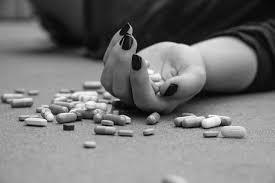
There are many symptoms of depression. Sadness and loss of satisfaction in things once enjoyed are probably the most known symptoms. But some symptoms are sometimes over looked. Guilt is one symptom that coincides with depression immensely. When feelings of guilt are put on a person they lose what hope they once had.
They blame themselves for things that they are not accountable for and have extreme feelings of hopelessness. Stress is another great factor in depression. Stressful events or experiences can stimulate depression in people who are predetermined to the disorder.
Depression is not only a state of being sad, it is a disease that conquers the ability to feel emotion, whether good or bad, whatsoever. Depression not only involves the mind, it also involves the body and thoughts. It is a serious but treatable disorder that affects millions of people, from young to old. It gets in the way of everyday life, causing tremendous pain, hurting not just those suffering from it but also impacting everyone around them.

If someone you love is depressed, you may be experiencing any number of difficult emotions, including helplessness, frustration, anger, fear, guilt and sadness. These feelings are all normal. Its not easy dealing with a friend or family member’s depression. If you neglect your own health, it can become overwhelming. That said, your companionship and support can be crucial to you loved one’s recovery. You can help them to cope with depressions symptoms, overcome negative thoughts, and regain their energy, optimism, and enjoyment of life.
Start by learning all you can about depression and how to best talk about depression and how to best talk about it with your friend or family member. But as you reach out, don’t forget to look after your own emotional health, you’ll need it to provide the full support your loved one needs.
Depression make it difficult for a person to connect on a deep emotional level with anyone, even the people they love the most. You can’t rescue someone from depression nor fix the problem for them. You’re not to blame for your loved one’s depression or responsible for their happiness. While you can offer love and support, ultimate recovery is in the hands of the depressed person.
Depression can be managed with professional treatment. People who receive professional treatment for depression said it improved their mental their mental condition. The doctor can treat any medical issues that may be responsible for the symptoms of depression, and if medication is an issue, the hospital provides other options as well.
Depression is a serious problem, but there are millions of people who have managed to lead successful lives despite struggling with it. It’s important that society recognizes depression for what it is. It’s an illness, not a choice.
youtube
Text 2
Title of the Text: Education
Author of the Text: Marion Lewis
Title of the Publication: Huffpost
URL or Web Address: https://www.huffpost.com/entry/home-schooling-vs-public-schooling-making-the-right_b_57d277c3e4b0f831f7071a82?guccounter=1&guce_referrer=aHR0cHM6Ly93d3cudHVtYmxyLmNvbS8&guce_referrer_sig=AQAAAAdTS0lhVxVQdiEckP6_R1TJARxC-hId68ORXr_Cqx4l6f2lO1nszEmcl_Q3YCyie7HfNJG_O8w18wsT4O6IonH2edBVsIRm1mUX23XjjZZNaNFp_55CodE6naHBt9euMvmJH6RtzsUIUBfrDFAHBHQ9WJk9DlIgc-bYl0XHYJsG

According to the article “Education plays an important role in human life regarding to build their personality, career , and mental growth”. Education helps us to build our own foundation and to widen our knowledge to our surroundings. Education empowers minds that will be able to conceive good thoughts and ideas. It enables students to do the analysis while making life decisions. It helps you to achieve your dreams, to be a doctor, engineer and many more.
We can also bring positive changes to the society, government and economic. Through government , education is one of the ways to prevent corruption and other environmental problems. To society, Education makes us better citizens by teaching us how to conduct ourselves through life by following rules and regulations and giving us a sense of conscience. Lastly, to economic, education helps the people to build more good structures and technology so that people would live a safety and enjoyable lifestyle.

As Nelson Mandela stated “Education is the most powerful weapon which you can use to change the world”. Education is used to empower ones mind to come up with new ideas new vision and plans for the society. Education is one of the reasons why our community is improving such as gadgets, houses and many more. Education grows as values. If you have the skills but don’t have the values then educated person become useless. Education has to be accessible to all. Thanks to modern technologies and internet innovators. Due to them, now rural people, poor people, and people living in huts are able to get access to education through mobiles phones.
There are difference between schooling and education. Schooling takes place in the home environment, while education may take place in schools, colleges or universities. Home schooling has steadily become one of the most popular forms of education for parents across the world. According to research, it develops increasingly fast at an approximate annual rate of 7-15 percent per year.
There are parents who believe that school environment can spoil the young minds and prevent them from developing independent thinking abilities. Basically, this reflects the difference between homeschooling and education, because in case of homeschooling children have a greater opportunity to develop certain skills that they would not be able to develop at school.
However, another difference lies in the fact that school might affect children negatively because of some categories of people they socialize with at school. This is a perceptible difference between home and school education.Some parents are concerned about the academic quality of various public schools due to the overcrowded classrooms. This is another difference between homeschooling and school education. It is reflected in the fact that school environment suggests educating a great number of students which prevents individual students from developing in a right way and receiving a quality education.

Furthermore, some parents have to take care of children with special needs for whom homeschooling is the best option, because home environment provides better conditions for their development. In this regard, it should be noted that another difference between homeschooling and education is that education does not provide means for accommodating needy students, which makes it an inappropriate form of education for students with disabilities.
Text 3
Title of the Text: Bullying
Author of the Text: Roxanne Dryden-Edwards
Title of the Publication: Bullying Facts
URL or Web Address: https://www.medicinenet.com/bullying/article.htm

Bullying is the big part of the fear of most people going to face. Bullying can lead to self harm. In severe cases, bullying can even lead to death. No matter how someone is bullied, face to face, publicly over the internet or anonymously over the internet, all cases extreme pain to the victim. Others who choose to do nothing or don’t reach out for help the victims of bully may secretly cut or harm themselves. Some they become depressed and think suicidal thoughts. This victims of bullies decide they can’t handle life itself anymore so they commit suicide.
Most of the teens bully through online or in social media because it is easy, you can just type, click and post even without them knowing who you are. Cyber bullying is very unhealthy though it never touches our body or we’re not physically damaged, but it causes us to become depress and can make us experience anxiety. We are mentally and emotionally damaged that can lead us to suicide.
Bullying is a deliberate act to hurt someone physically, verbally or psychologically. Bullying is an issue of power. Bullying is when individual or groups persistently over a period of time, behave in ways, which causes another person to feel hurt, physically or non-physically. Using technology, a person can be able to bully without the face to face confrontation. Bullies can be anyone because they can hide behind technology becoming anonymous. These makes finding the bully very difficult.
youtube
There are many different types of bullying that can be experienced by children and adults alike, some are obvious to spot while others can be more subtle. The different types of bullying that we look at below are some of the ways that bullying could be happening. Physical bullying includes, hitting, kicking, tripping, pinching and pushing or damaging property. Verbal bullying includes name calling, insults or verbal abuse. While verbal bullying can start off harmless, it can escalate to levels which start affecting the individual target. Social bullying is often harder to recognize and can be carried out behind the bullied person’s back. It is designed to harm someone’s social reputation and/or cause humiliation. Cyber bullying can be overt or covert bullying behaviors using digital technologies, including hardware such as computers and smartphones, social media and other online platforms.

There are several sites on the internet that offer advice on how to deal with bullies. Some of the suggestions that can be found are to make sure to tell a teacher, tell parents, be aware when walking alone, always stay calm when being bullied, make sure to use one voice to attract attention. Talk to someone. As hard as bullying is to deal with, one day you will be out of school and never have to see these people again. In the meantime, fond someone you can confide in. Talk to your parents or a counselor. They may be able to help.
Bullying can never be a joke, it causes major destruction to ourselves. It will never be good to bully someone though you can make some people laugh, but the point is you just hurt or win someone’s feeling and life. Stand up for friends and others you see being bullied. Your actions help the victim feel supported and may stop bullying. Some people bully to deal with their own feelings of stress, anger, or frustration. Bullies might also have been bullied and now want to show their power by bullying someone else. Even though people are different, it’s important to treat everyone with respect.
Text 4
Title of the Text: Pollution
Author of the Text: Archana
Title of the Publication: India Celebrating
URL or Web Address: https://www.indiacelebrating.com/article/article-on-pollution/

Anything added into the environment that results in producing harmful or poisonous effect on living things is called pollution. Pollution is the process that makes nature’s resources such as land, water, air or other parts of the environment unsafe or unsuitable to use. Pollution can be of many types: soil, air, water, thermal, radioactive, noise, and light. The toxins released are inhaled by each one of us while we breathe. Pollution is a process of making the environment dirty and unhealthy for humans and animals to live. It is caused due to the release of both tangible and intangible contaminants. These can be released naturally or by humans themselves accidentally or deliberately.

Inhaling poisonous air is as hazardous as smoking. It is not only the humans who are affected from this polluted environment but also the animals. Air is filled with highly toxic gases. These dangerous gases in environment are released by the power industries that burn fossil fuels, industries that dispose wastes in the water, farmers using pesticides, high usage of artificial lights and loud sounds. Any use of natural resources at a rate higher than the nature’s capacity to restore itself can result in pollution of air, water, and land. Other than human activities, there are a few periodic natural cycles that also result in release of dangerous stuff. Natural activities other than the human activities like volcanic eruption, dust wildfires, etc also result in creation of pollution.
Pollution disturbs our ecosystem and the balance in the environment. Each year millions of people die due to various diseases caused by pollution. The biggest irony of all this is that even if we know that the earth is getting polluted, ultimately it is the human beings themselves who dig their own grave by doing deliberate activities because of which pollution is caused. It does not only spoil human beings’ health but also worsen their quality of life.In order to fight this life threatening effects of pollution, vigorous efforts should be made. Anti-pollution laws should be strictly implemented. In order to check water pollution, sewage and the factory wastes should be properly disposed off and vehicles should be made eco-friendly.
Every individual owns certain responsibility of maintaining few points such as not throwing garbage all around, growing trees, using public transport instead of their own, etc. We must shun excessive consumption and avoid careless and deliberate disposal of post-consumption waste resources which could otherwise be recycled and would led to pollution control. Pollution cannot be reduced or controlled if a sense of responsibility towards our Mother Earth is not felt by all concerned. Pollution can be controlled, if not eliminated. Efforts such as promoting green environment and proper disposal of waste are simple steps that lead to great emphasis on maintaining the order of environment. Environmental pollution is a global problem today. Public awareness is a must to prevent pollution. Population control will also help to save the world from environmental pollution. Scientific exploitation of natural resources is yet another step to prevent environmental pollution. Let us not destroy the place we live in for there is no other place we can go.
youtube
3 notes
·
View notes
Text
Am I Depressed?
What is Depression?
Depression is about being sad, sure—but it’s more than that.
Depression a major depressive disorder is a common and serious medical illness that negatively affects how you feel, the way you think and how you act. Fortunately, it is also treatable. Depression causes feelings of sadness and/or a loss of interest in activities once enjoyed. It can lead to a variety of emotional and physical problems and can decrease a person’s ability to function at work and at home.


If you’re sad because you lost your job, are going through a breakup, or lost someone in your life… it’s certainly no fun, but it’s also pretty normal. Sadness, even extreme sadness, is a natural reaction to events like these. That said, regular sadness can also turn into depression. If the feelings don’t get better over time, or if your mood starts to get in the way of your daily life, you might be developing a case of depression.
“I felt alienated and alone, because I was like, what's wrong with me? I always wanted people to love me, so I never got angry with them; I turned my anger onto myself. I hated myself for being depressed, I hated feeling depressed, I hated feeling.” Cara Delevingne, a famous actress once said.

What Are the Main Causes of Depression?
There are a number of factors that may increase the chance of depression, including the following:
Abuse. Past physical, sexual, or emotional abuse can increase the vulnerability to clinical depression later in life.
Certain medications. Some drugs, such as isotretinoin (used to treat acne), the antiviral drug interferon-alpha, and corticosteroids, can increase your risk of depression.
Conflict. Depression in someone who has the biological vulnerability to develop depression may result from personal conflicts or disputes with family members or friends.
Death or a loss. Sadness or grief from the death or loss of a loved one, though natural, may increase the risk of depression.
Genetics. A family history of depression may increase the risk. It's thought that depression is a complex trait, meaning that there are probably many different genes that each exert small effects, rather than a single gene that contributes to disease risk. The genetics of depression, like most psychiatric disorders, are not as simple or straightforward as in purely genetic diseases such as Huntington's chorea or cystic fibrosis.
Major events. Even good events such as starting a new job, graduating, or getting married can lead to depression. So can moving, losing a job or income, getting divorced, or retiring. However, the syndrome of clinical depression is never just a "normal" response to stressful life events.
Other personal problems. Problems such as social isolation due to other mental illnesses or being cast out of a family or social group can contribute to the risk of developing clinical depression.
Serious illnesses. Sometimes depression co-exists with a major illness or may be triggered by another medical condition.
Substance abuse. Nearly 30% of people with substance abuse problems also have major or clinical depression. Even if drugs or alcohol temporarily make you feel better, they ultimately will aggravate depression.

What are the Symptoms of Depression?
Feeling sad or having a depressed mood
Loss of interest or pleasure in activities once enjoyed
Changes in appetite — weight loss or gain unrelated to dieting
Trouble sleeping or sleeping too much
Loss of energy or increased fatigue
Increase in purposeless physical activity (e.g., hand-wringing or pacing) or slowed movements and speech (actions observable by others)
Feeling worthless or guilty
Difficulty thinking, concentrating or making decisions
Thoughts of death or suicide
Symptoms must last at least two weeks for a diagnosis of depression.
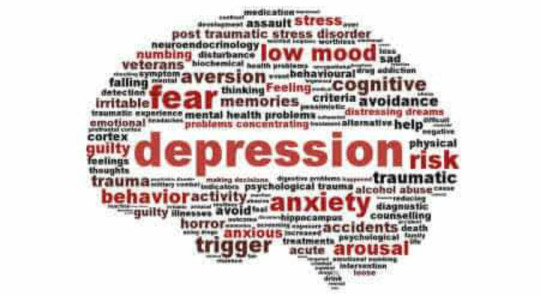
How to Avoid Depression?
1. Avoid Stress - stress had a negative impact on mental health, life satisfaction, and general health.
2. Exercise - Exercise offers a range of health benefits including helping prevent depression. Both high-intensity and low-intensity exercise is beneficial in this respect.
3. Diet - The brain needs the right mix of nutrients to function properly, and adding fruits and vegetables to the diet may help the people with depression
4. Have Enough Sleep - Not getting enough sleep has a significant impact on people psychologically and physically, and insomnia is associated with depression.
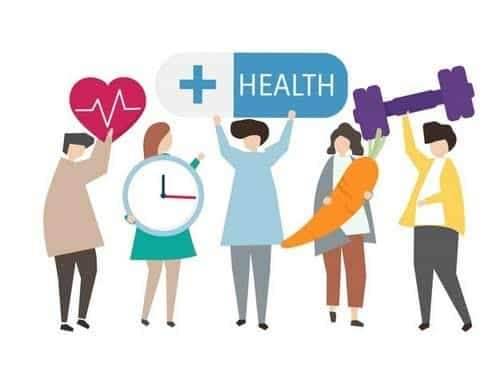
References
https://www.psychiatry.org/patients-families/depression/what-is-depression
https://www.webmd.com/depression/guide/causes-depression
https://www.medicalnewstoday.com/articles/320502.php
1 note
·
View note
Text
What are Mental Health Issues?
Martin, Carl
May 9, 2019
Have you ever thought of yourself having mental health issues? Some people think they do but most often than not it is self-diagnosed, there are also those who would use the terms like depressed, and anxiety in social media with little regard for what they mean and to those who suffer from said mental health issues. Here we are going to define what are mental health illness. disorders and breakdown common misconceptions about them.
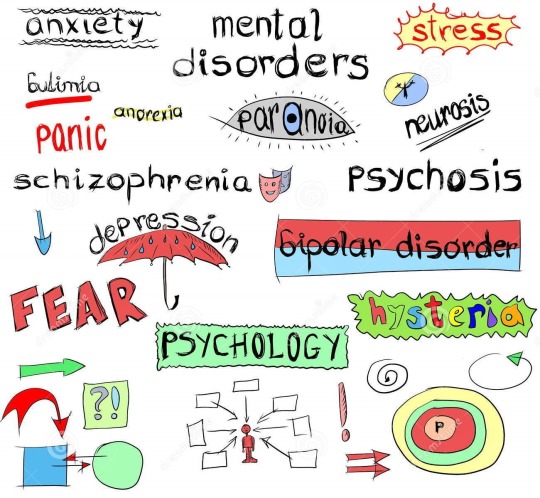
First of all, Mental Health Illness and Mental Health Disorders are different although used interchangeably. Disorder is a disturbance that affect the normal function of the body or mind, most mental health illnesses end with disorder, like bipolar disorder, depressive disorder or anxiety disorder, however “illness” is a disease or a period of sickness that affect the body or mind, therefore if a disorder cause considerable damage to a body overtime it will be diagnosed as an illness. Do note that not all disorders are diseases but are still categorized as an illness. According to the fact sheet of the World Health Organization, Mental Health Disorders include the following: Depression, Bipolar Affective Disorder, Schizophrenia and other psychoses, Dementia, Intellectual Disabilities and Developmental Disabilities including autism. The said disorders are among the few common ones but currently There are nearly 300 mental disorders listed in the DSM-5 (Diagnostic and Statistical Manual of Mental Disorders). This is a handbook used by health professionals to help identify and diagnose mental illness. According to Mayoclinic, Symptoms of those who are diagnosed with a mental health illness can vary, depending on the disorder, circumstances and other factors. Mental illness symptoms can affect emotions, thoughts and behaviors. People suffering from illness may experience the following: sleep or appetite changes, mood changes, withdrawal, drop in functioning, problems with thinking, increased sensitivity, apathy, feeling of disconnection, illogical thinking, nervousness, unusual behavior, suicidal thoughts, and extreme mood swings. There are varieties of what causes mental health disorders, usually they can surface due to a combination of biological, psychological and environmental factors. Biological factors are linked with the abnormal function of the brain due to nerve damage or defects and may be cause by genetics, infections, injury, prenatal damage or injury during birth, substance abuse and poor nutrition. An example of a mental illness due to genetics is schizophrenia, those who are born into a family with a history of schizophrenia are prone to developing the disease by themselves. Psychological disorders may be due to childhood trauma like sexual or domestic abuse, loss of loved ones, neglection, and emotional abuse. Environmental factors are stress inducing situations that may trigger mental health disorders like lost of loved ones, divorce, social or cultural expectations, insecurities and moving places like switching schools or jobs.
There are lot of misuse of serious mental health issues, like people saying they are OCD or jokes that uses the word “autistic” as the punchline, this can be very upsetting to patients diagnosed with mental health illness and their families. It may be due to a lack of education around what it truly means to suffer from a mental illness, and why these words matter. Regardless, actions that discriminate people with mental health issues are highly stigmatized even if used as joke. There are also misconceptions about mental health that are often due to lack of information or honest mistakes and of them is that many people perceive those with a mental illness as individuals with a collection of negative traits. It is often difficult to recognize that behaviors associated with mental health conditions vary and are often not personality traits, but side effects of a mental health condition. Several other mistakes include: People with Mental Health Problems are weak and/or lazy, Mental Health Issues are uncommon, and Mental Health Issues cause a person to be violent.
As a conclusion, we must be aware that mental health issues are widespread and is common among other people, we must adapt sensitivity for those who suffer from such illness and accept them instead of fearing and isolating them. Furthermore, let us not take lightly of Mental Health Issues as some of them are really severe and may offend those who are diagnosed with it and at worse it may become a tipping point for them.
https://www.mayoclinic.org/diseases-conditions/mental-illness/symptoms-causes/syc-20374968
https://www.who.int/en/news-room/fact-sheets/detail/mental-disorders
https://www.webmd.com/mental-health/mental-health-types-illness#1
https://www.psychiatry.org/patients-families/warning-signs-of-mental-illness
https://www.quora.com/What-are-the-differences-between-mental-illness-and-mental-disorder
https://www.healthdirect.gov.au/types-of-mental-illness
https://www.quora.com/What-are-the-differences-between-mental-illness-and-mental-disorder
https://www.healthyplace.com/other-info/mental-illness-overview/difference-between-mental-illness-and-mental-disorder
https://www.mind.org.uk/information-support/types-of-mental-health-problems/mental-health-problems-introduction/causes/
https://www.webmd.com/mental-health/mental-health-causes-mental-illness#2-4 https://www.pyramidhealthcarepa.com/pyramid-family-behavioral-healthcare/pfbh-blog/some-common-misconceptions-of-mental-health-disorders/
https://www.psychguides.com/interact/mental-health-misconceptions-analyzing-americas-awareness-of-common-conditions/
https://thenanproject.org/stigma-and-the-misuse-of-mental-health-terminology
https://www.bbc.com/news/magazine-15213824
1 note
·
View note
Text
Ok I’m gonna try to clear things up a bit.
I am however in no means a professional so don’t take everything I say here for 100% true. If you have anything to add and/or a complain you can tell me but please be respectful, thx.
Transgender - “transcending gender” (Not “transitioning from one gender to another” as suggested by some) everyone who’s assigned sex does not match their gender identity. Identity is shown through behavior, personality and/or way of dressing. This can include tomboys, crossdressers, drag-queens etc. They don’t necessarily need gender dysphoria. They should not transition if they don’t medically have to though. It on its own is not of medical importance. (1, 2)
Transsexual - “transcending sex” (not sexual attraction.) people who transitioned, are transitioning or plan on transitioning from one sex to the other through surgeries and HRT. They can, but don’t have to be transgender. The two terms were merged together with no second thought given because people kept thinking it was a sexual attraction. Gender incongruence (currently still gender dysphoria to my knowledge) should be diagnosed to get insurance to cover it and in some places, to get HRT at all. Some people refuse this term. Transsexualism is still listed as a diagnosis in ICD-10, will however be excluded from ICD-11. Was (again to my knowledge) the original T in LGBT. Wether or not it should be now is up for debate. It is in most cases of medical importance.(2, 3, 4)
Gender Dysphoria - also called Gender Identity Disorder (GID) (though gender dysphoria is usually preferred). Describes the distress related to one’s assigned sex or gender. Exact diagnosis criteria vary but it is usually characterized by distress about one’s assigned sex, the desire to be (perceived/live as) the opposite sex, and a clinically relevant level of suffering. It’s is included in the ICD-10 (as GID) as a personality disorder (and therefore a mental illness) but will be replaced by Gender Incongruence in ICD-11. It is usually the diagnosis needed to get HRT/surgeries covered by insurance. (4, 5)
Gender Incongruence - (GI) is to replace GID in the ICD-11. No longer listed as a mental illness and instead as conditions related to sexual health. As the name suggest it is a consistent incongruence between ones assigned sex and perceived gender (often) leading to the desire to transition. Exact criteria would be unknown to me. (6)
Conclusion for me so far is:
-you don’t need GID or GI to be transgender.
-you do need GID (or GI in the future) to be transsexual/to transition
-transgender people without GID or GI should not transition
-I am not sure if cis people are opposite to transsexual or transgender now.
-either way it would open the option of either transsexual cis people (people who had surgery conforming to their gender) or transgender cis people (people who do not conform to gender roles but are otherwise don’t transition)
-idk if I like that thought,,
-transsexual is not necessarily a bad word, just confusing to some because they don’t know how words work.
-the discourse “you (don’t) need dysphoria to be trans” is pointless because trans can mean both transsexual and transgender so both are right and wrong.
Again take everything with a grain of salt and be respectful.
Sources:
(1)https://www.plannedparenthood.org/learn/sexual-orientation-gender/trans-and-gender-nonconforming-identities
(2 both for transgender and transsexual) https://www.psychiatry.org/patients-families/gender-dysphoria/expert-q-and-a
(3)https://en.m.wiktionary.org/wiki/transsexual
(4 includes both GID and Transsexualism)https://icd.who.int/browse10/2016/en#/F60-F69 (F64)
(5)https://www.psychiatry.org/patients-families/gender-dysphoria/what-is-gender-dysphoria
(6)https://icd.who.int/browse11/l-m/en#/http%3a%2f%2fid.who.int%2ficd%2fentity%2f90875286
#i’d also like excuse my english im not a native speaker#transgender#transdiscourse#transmed#truscum#tucute#trans
2 notes
·
View notes
Text
Case study: Neuroscience
Context
Christopher is a 9-year-old kid who is in third grade in Primary School. He has been showing in the recent years learning difficulties regarding reading and oral expression. This is why his parents seek help from the school. He has three brothers who help him with his schoolwork, and his parents are involved in this as well, although they have expressed in the past low expectations due to his evolution in the past.
Problems
His reading skills are slow, he tends to skip parts of the texts, and switch some letters and words, thus he takes a lot of time to read even little paragraphs, and his reading comprehension skills also present problems. This causes him to have little interest in reading, and high levels of fatigability. He can write well, but he does have issues with spontaneous writing and dictation. Regarding oral expression, he tends to use very simple words and short sentences to express his ideas. He prefers to learn through visual aids, likes to work alone, understands his limitations which makes him want to learn more and control frustrating emotions well, and since he has high levels of fatigability his focus is better at the beginning of the lessons.
He was diagnosed with Specific Learning Disorder which is a neurodevelopmental disorder that tends to begin at an early age. Learning disabilities refer to ongoing problems in one of the three areas: reading, writings, and math, which are foundational to one's ability to learn (Penesetti, 2018). SLD can impact the ability to put thoughts into written words, spelling, reading comprehension, math calculation, and math problem solving, which causes kids to have issues with different subjects in school. If this disorder is not worked on can cause long term problems like psychological distress, poor mental health, unemployment, and dropping out of school.
Diagnosis
To be diagnosed with SLD, the individual must meet the following criteria:
1. Have difficulties in reading (inaccurate, slow, and only done with a lot of effort), difficulty with reading comprehension, difficulty with spelling, difficulty with written expression (grammar, punctuation, organization), difficulty understanding number concepts, and difficulty with mathematical reasoning.
2. Have very low academic skills for their age which can cause problems in everyday activities.
3. The problem started during school-age (sometimes it appears at a later time in adult life).
4. The learning difficulties are not due to other conditions, like intellectual disability, vision, or hearing problems, economic or environmental context, family context, etc.
Intervention
The methodology and teaching process inside the class itself can be modified to help this student. Some ideas:
· Encourage the analysis of different kinds of texts, beginning with short and simple ones, and progressively going with more complex texts.
· Teaching more vocabulary to the student to improve the oral expression.
· Working on graphemes and phonemes with the student.
· Multisensory experiences and use of technology (also material the student has expressed previously interest in).
· Working with small and interactive groups, instead of big groups.
· Working with strategies to think aloud while reading or writing.
· Provide the student with systematic and immediate feedback. As well as oral and clear instructions (Pesova et al., 2014).
· Flexibility with levels of difficulty.
References
Penesetti, D. (2018). What Is Specific Learning Disorder? American Psychiatric Association. https://www.psychiatry.org/patients-families/specific-learning-disorder/what-is-specific-learning-disorder
Pesovaa, B., Sivevskab, S., & Runcevac, J. (2014). Early Intervention and Prevention of Students with Specific Learning Disabilities. Science Direct. https://www.sciencedirect.com/science/article/pii/S1877042814049726
0 notes
Text
Minority Groups and Mental Health
I wanted to learn more about mental illness among different groups of people and races because I know that not everyone receives the proper care that they need. According to the National Alliance on Mental Illness, “approximately 1 in 5 adults in the U.S. – 43.8 million, or 18.5% - experiences mental illness in a given year” (nami.org). Additionally, “individuals living with serious mental illness face an increased risk of having chronic medical conditions. Adults in the U.S. living with serious mental illness die on average 25 years earlier than others, largely due to treatable medical conditions” (nami.org). This statistic surprised me because I don’t think we talk about mental illness enough unless there is a mass shooting. I believe that many people blame mental illness for mass shootings and not realize that guns are a part of the problem as well.
A television show that portrays mental illness is This Is Us. One of the characters of the show is a black man (Randall), and the show exhibits his struggles with mental illness as someone from a minority group. In one of the episodes, Randall has a panic attack. This episode opened my eyes to mental illness and people who suffer from panic attacks because I have never had a panic attack before and I don’t know what it is like to have one. This episode showed me the reality of what it is like to deal with panic attacks and how essential it is that people receive the proper mental health treatment that they need because it can make a huge difference in their life.
As the television show This Is Us exhibits, people from minority groups don’t always receive the proper mental health treatment that they deserve. The American Psychiatric Association discovered that “most racial/ethnic minority groups overall have similar – or in some cases, fewer – mental disorders than whites. However, the consequences of mental illness in minorities may be long lasting” (psychiatry.org). Additionally, a 2015 study found that “among people with any mental illness, 48% of white people received treatment, 22% of Asian people received treatment, and 31% of black/Hispanic people received proper treatment” (psychiatry.org). I have always wondered why the percentage of people receiving proper treatment for those who are white is always usually higher than the percentage of people receiving proper treatment of minority groups. Some factors that may explain this include: “lack of insurance, lack of diversity among mental health care providers, and lack of culturally competent providers” according to psychiatry.org. Also, it has been proven that there is a mental illness stigma especially among people of minority groups (psychiatry.org).
In an article written by Courtney Ferrell Aklin, titled “Minorities and Mental Health: Moving Beyond Stigma,” “Most ethnic minorities have similar prevalence rates of mental health issues to those of Whites, but they have less access to mental health services, are less likely to seek and receive needed care, and, when they do receive it, are more likely to get poorer-quality care (nih.gov). This is something that surprised me, and it reminded me of something my friend had said to me once. She is black, and she was recently diagnosed with depression. Before she was diagnosed, she explained to me that people of minority groups (her parents) don’t believe in mental illness because it is hard for them to understand. This shocked me because mental illness is real and I think that something needs to be done to ensure that everyone is receiving the proper mental health treatment that they need, no matter their race, age, religion, etc., because one’s mental health is essential to their daily life.
Citations:
Aklin, Courtney. “Minorities and Mental Health: Moving Beyond Stigma.” NIH, 13 July 2017, https://nimhd.blogs.govdelivery.com/2017/07/13/minorities-and-mental-health-moving-beyond-stigma/. Accessed 20 November 2018.
“Mental Health By The Numbers.” National Alliance on Mental Illness, https://www.nami.org/Learn-More/Mental-Health-By-the-Numbers. Accessed 20 November 2018.
“Mental Health Disparities: Diverse Populations.” American Psychiatric Association, 2017, https://www.psychiatry.org/psychiatrists/cultural-competency/mental-health-disparities. Accessed 20 November 2018.
1 note
·
View note
Photo

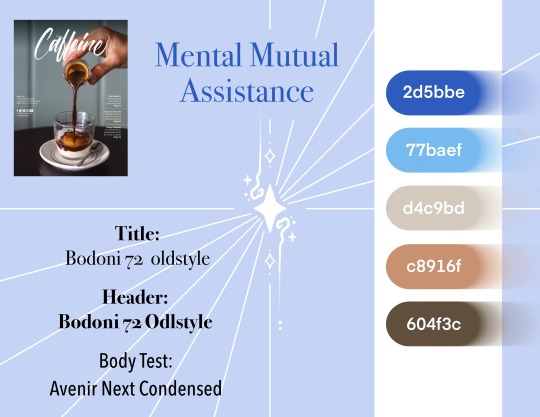

Mental patients and the disabled need jobs
Mental illnesses are health conditions involving changes in emotion, thinking or behavior (or a combination of these). Mental illnesses are associated with distress and/or problems functioning in social, work or family activities. The disabled definition is impaired or limited by a physical, mental, cognitive, or developmental condition: affected by disability. In fact, there are many such patients around us. But almost all of them are difficult to cure. This has had a great impact on their daily lives. Depressed mood, unable to take care of yourself, no job opportunities, and lack of communication will all form a vicious circle.
nearly one in five (19 percent) U.S. adults experience some form of mental illness
one in 24 (4.1 percent) has a serious mental illness*
one in 12 (8.5 percent) has a diagnosable substance use disorder
About 1 in 6 (17%) children aged 3–17 years were diagnosed with a developmental disability, as reported by parents, during a study period of 2009-2017. These included autism, attention-deficit/hyperactivity disorder, blindness, and cerebral palsy, among others.
Source
What Is Mental Illness?Ranna Parekh, M.D., M.P.H.August 2018 https://www.psychiatry.org/patients-families/what-is-mental-illness
Data & Statistics on Autism Spectrum Disorder. September 25, 2020https://www.cdc.gov/ncbddd/autism/data.html
Sacramento Daily Union, Volume 52, Number 59, 1 November 1884https://cdnc.ucr.edu/?a=d&d=SDU18841101.2.4&e=-------en--20--1--txt-txIN--------1
0 notes